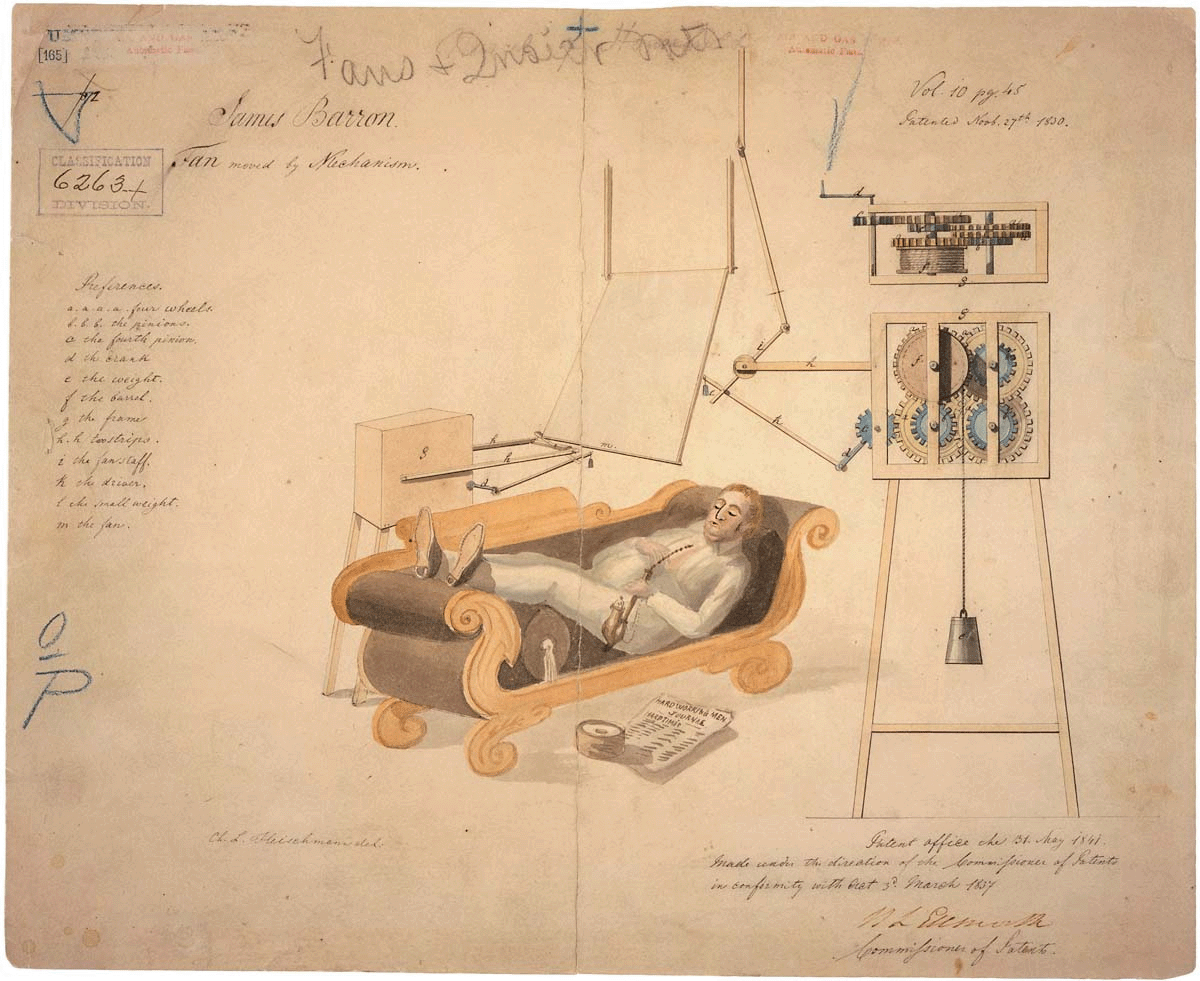 |
| image: File:Patent, Mechanical Fan, 1830.png (wikipedia.org) |
"note : regarding the planarization functions – I have been asked to draw your attention to the patents held by Evolute, Helmut Pottmann and RFR: http://www.evolute.at/technology/patents.html"
As is turns out, there are actually two patents owned by evolute, Helmut Pottmann and RFR regarding (in simple words) the panelization of free-form surfaces with flat panels. To be more precise: they are not patenting the algorithm, they are not patenting the geometry per se, but "the physical architectural building solution". In other words, you can re-invent the algorithm, you can create a different algorithm that offers the same solution and you can play as much as you want with such forms in your computer. But if you decide to build the form, then you have to pay 1% of the construction cost. Really?
The blog post mentioned before points out the insanity of the situation. You can read evolution's answer here, and the answer of the creator of Kangaroo here. Better read for yourselves so you can draw conclusions, but here is how I see it:
Patenting of algorithms, geometrical forms, their constructed version or whatever else you can think of in this line, is fundamentally against any idea of intellectual or creative freedom. I don't really care if someone is a patent troll or not, the problem begins with the patent itself. If someone wants to capitalize on the research he is doing on architectural geometry, he can very well do so by selling the software (which is very much true for evolute), or by selling his services as an expert. Now, if he thinks that this is not enough there is a simple answer: do not conduct the research. Somebody else will. I am afraid that it is a rather important issue, and it is in the hands of all the people that are part of this community to give a strong answer: by voicing our opinion, by not supporting in any way those that follow such practices, by creating open source, freely available software and (equally important) by appropriately crediting the work of others that has helped us in our work. Let's just use the power of bottom-up processes.
update Sep 07: A new blog post from evolute on the subject here.
Looks like they are trying to make sure that we understand that they do have the patent. And no, by adding a little bit of torsion, you can not escape, they are going to get you!
update Sep 07: A new blog post from evolute on the subject here.
Looks like they are trying to make sure that we understand that they do have the patent. And no, by adding a little bit of torsion, you can not escape, they are going to get you!






I say, if they can patent it, why not? But it seems strange if someone can patent something like this...
I think that it is not just a legal problem (which of course it is) but also a matter of "how we do things". Obviously, they had the right to patent it, and then a court will have the right to decide if someone should pay royalties or no. But what I am saying is that we, as users, designers, programmers etc, have the ability to define behaviors collectively. For example if we promote open or free solutions while at the same time boycotting 'patent-oriented' ones it is quite possible that more and more open processes will be created (the virtue of positive feedback). In a way, it is a matter of bottom-up 'ethics' (a dangerous word, I know) vs top-down laws.
clearly, this is a very bad start. i am wondering what is going to happen if more companies follow that example. it sound like a nightmare!